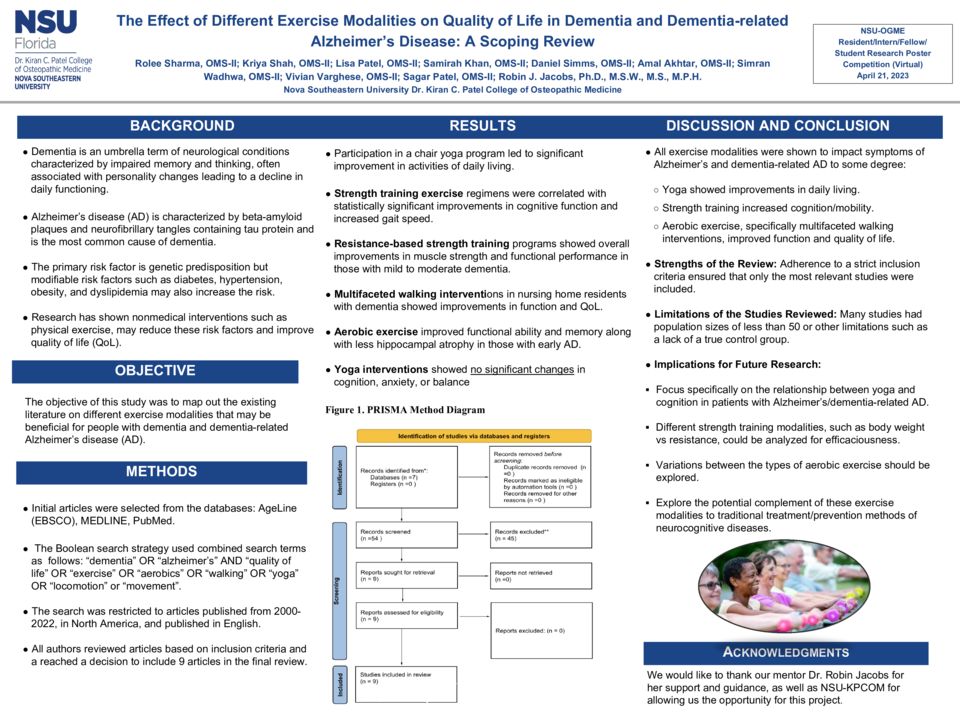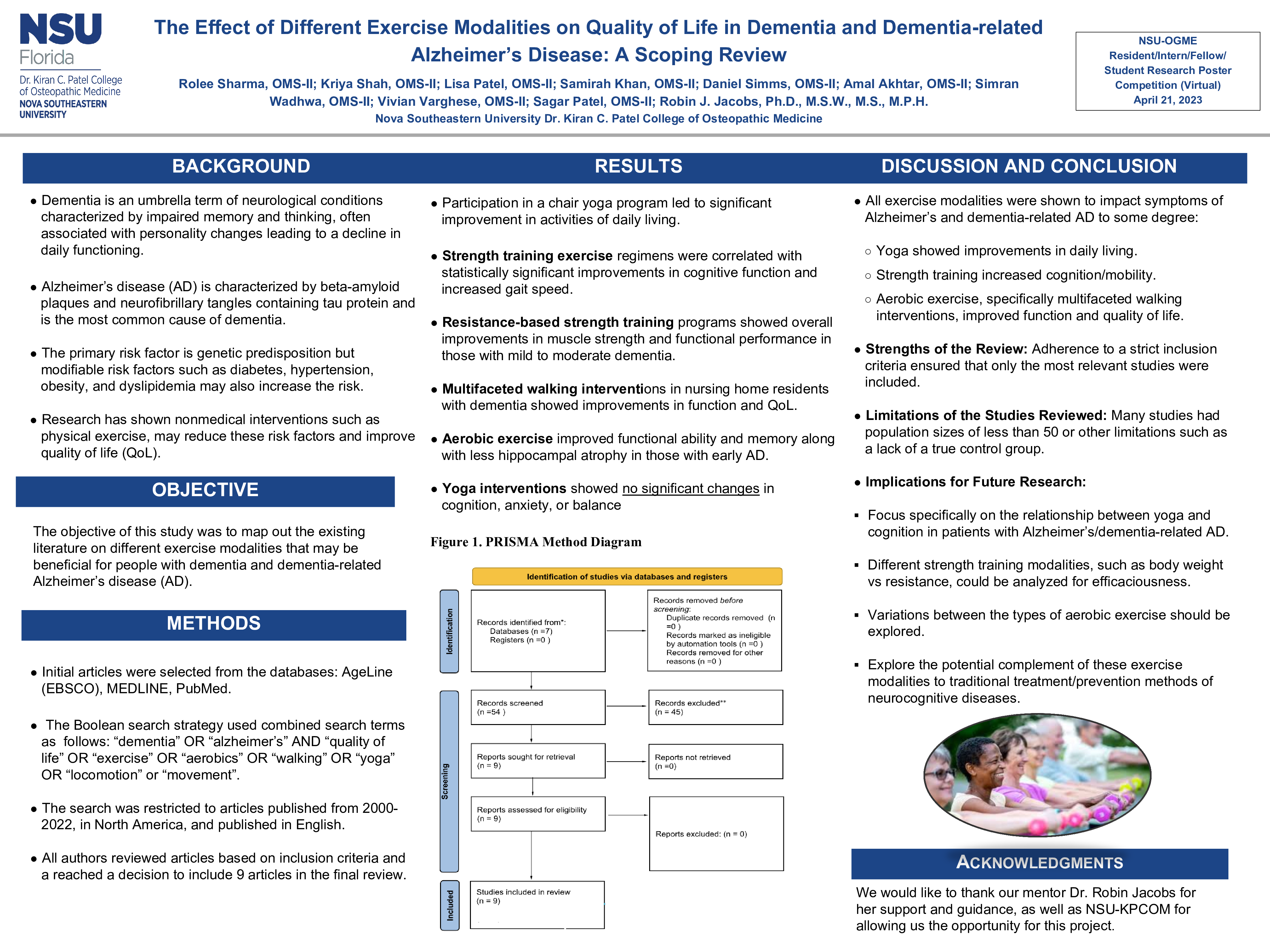The Effect of Different Exercise Modalities on Quality of Life in Dementia and Dementia-related Alzheimer’s Disease: A Scoping Review
Dr. Kiran C. Patel College of Osteopathic Medicine, Nova Southeastern University, Fort Lauderdale, USA
Rolee Sharma, Kriya Shah, Medical StudentDr. Kiran C. Patel College of Osteopathic Medicine, Nova Southeastern University, Fort Lauderdale, USA
Kriya Shah, Lisa Patel, Medical StudentDr. Kiran C. Patel College of Osteopathic Medicine, Nova Southeastern University, Fort Lauderdale , USA
Lisa Patel, Samirah Khan, Medical StudentDr. Kiran C. Patel College of Osteopathic Medicine, Nova Southeastern University, Fort Lauderdale, USA
Samirah Khan, Daniel SimmsDr. Kiran C. Patel College of Osteopathic Medicine, Nova Southeastern University, Fort Lauderdale, USA
Daniel Simms, Amal Akhtar, DODr. Kiran C. Patel College of Osteopathic Medicine, Nova Southeastern University, Fort Lauderdale, USA
Amal Akhtar, Simran Wadhwa, DODr. Kiran C. Patel College of Osteopathic Medicine, Nova Southeastern University, Fort Lauderdale, USA
Simran Wadhwa, Vivian VargheseDr. Kiran C. Patel College of Osteopathic Medicine, Nova Southeastern University, Fort Lauderdale, USA
Vivian Varghese, Sagar PatelDr. Kiran C. Patel College of Osteopathic Medicine, Nova Southeastern University, Fort Lauderdale, USA
Sagar Patel, Robin J. Jacobs, Professor, MPH, PhDDr. Kiran C. Patel College of Osteopathic Medicine, Nova Southeastern University, Fort Lauderdale, USA
Robin J. Jacobs





